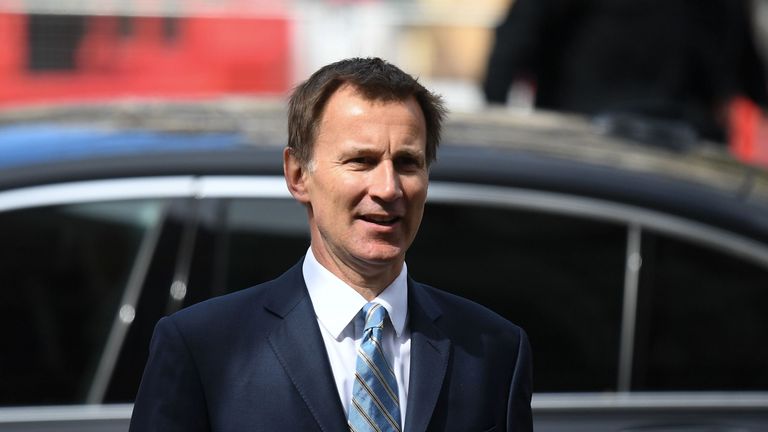Coronavirus: ‘Surprised’ scientists warn UK’s measures don’t go far enough
Boris Johnson’s new measures to protect the British public from the coronavirus have come into full force, but some scientists are warning his approach does not go far enough.
Yesterday, the prime minister confirmed the government is entering its second phase of the response to COVID-19 – moving from trying to contain the virus to delaying its spread.
Anyone with a new persistent cough or a high temperature will now have to self-isolate and stay at home for seven days, and Mr Johnson has urged schools to cancel planned trips abroad.
However, the UK has stopped short of deciding to close schools, with Mr Johnson warning that scientific advice suggests “this could do more harm than good”.
Although ministers are “considering” a ban on major public events such as festivals and football matches, they are currently being allowed to go ahead as planned.
Some medical experts have praised the UK’s plans as “balanced” and “sensible”, but others have expressed surprise that tougher restrictions have not been brought into action now.
Professor Jimmy Whitworth of the London School of Hygiene and Tropical Medicine said: “Based on evidence from other countries, the most realistic approach to this is to initiate the strongest public health measures that will be supported by the general British public.
“I am surprised that stronger measures haven’t been introduced at this stage, but I anticipate that they will come in the next week or two.”
The University of Nottingham’s Professor Jonathan Ball also warned that the government’s advice on self-isolation doesn’t go far enough, adding: “There is emerging data that suggests that in as many as 70% of cases the infection will present with symptoms similar to a common cold.
“This is serious as it means that based on government advice – which specifies persistent cough and raised temperature – most people who can potentially transmit will not be aware of the risk they pose to others and will not self-isolate.”
Speaking to BBC Newsnight, former health secretary Jeremy Hunt described the coronavirus outbreak as a “national emergency” – adding he was “personally surprised that we’re still allowing external visits to care homes”.
He said: “I think it is surprising and concerning that we’re not doing any of it at all when we have just four weeks before we get to the stage that Italy is at.
“You would have thought that every single thing we do in that four weeks would be designed to slow the spread of people catching the virus.”
Others, such as the University of Nottingham’s Professor Keith Neal, have backed the government’s approach so far – and suggested that cancelling all sporting events would increase the risk of Britons going to pubs where “more significant close contact might occur”.
The emeritus professor in the epidemiology of infectious diseases added: “The plans are sensible, it is very easy to say more needs to be done, but there is little evidence to make any decision.”
Yesterday, Mr Johnson warned that the coronavirus is the worst public health crisis in a generation – and said “many more families are going to lose loved ones before their time”.
The prime minister said measures that cause “severe disruption across our country for many months” will be rolled out, but it is vital they are not introduced too early.
So far, 10 people in the UK who have had COVID-19 have died, with the World Health Organisation declaring a global pandemic.
The number of confirmed cases in the UK reached 590 on Thursday – up by 134 in 24 hours.
Source: Read Full Article




